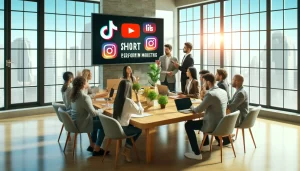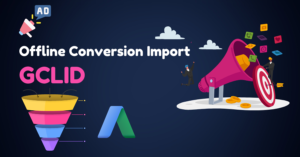With the rise of Generative AI in the world of advertising, there is a noticeable shift in how marketers create and deliver ads.
From personalized ads to predictive targeting, this technology is changing the way brands engage with consumers.
As Google and Facebook adjust with features like Responsive Search Ads and Dynamic Ads, there are discussions about ethical considerations and the risk of bias.
Discover the influence, obstacles, and future of Generative AI in advertising with us.
What is Generative AI?
Generative AI is a technology that utilizes machine learning algorithms to generate new data based on existing input data. This marks a significant change in the operations of AI systems, providing transformative capabilities that lead to developments and progress in various industries.
By allowing machines to independently create content like images, text, and music, Generative AI has opened up a range of possibilities in fields such as marketing, design, and entertainment. This technology has the potential to streamline creative processes, improve efficiency, and introduce new pathways for innovation.
As neural networks and deep learning continue to advance, Generative AI is becoming more sophisticated, creating opportunities for personalized content generation, product design, and even drug discovery. The incorporation of Generative AI is reshaping business strategies, prompting companies to adjust and utilize its capabilities for competitive edge.
How is Generative AI Used in Advertising?
Generative AI is transforming the advertising landscape by using advanced algorithms to enhance targeting strategies and customize content based on consumer behavior and preferences. This innovative technology enables marketers to develop dynamic and real-time campaigns that resonate with their intended audience.
By incorporating Generative AI into advertising, businesses can access valuable insights on consumer behavior, enabling them to deliver highly-targeted ads that have a higher likelihood of converting. This technology facilitates the automation of ad creation and optimization methods, allowing marketers to anticipate trends and deliver personalized campaigns on a large scale. With the capacity to analyze large volumes of data in real-time, Generative AI enhances digital marketing endeavors by boosting ROI and increasing audience engagement.
1. Personalized Ads
Personalized ads powered by Generative AI involve tailoring marketing messages to specific audience segments based on data-driven insights. This approach enhances audience targeting strategies and enables brands to deliver highly relevant content to individual consumers.
By utilizing Generative AI, marketers can analyze massive amounts of data to understand consumer preferences, behaviors, and demographics with precision. This deep understanding allows businesses to create customized advertisements that resonate with the unique needs and preferences of diverse customer groups. The tailored messages generated through Generative AI help establish a deeper connection with customers, leading to increased engagement and conversion rates. This level of personalization contributes significantly to the success of marketing campaigns in today’s increasingly competitive landscape.
2. Dynamic Creative Optimization
Dynamic creative optimization powered by Generative AI involves the automatic adjustment of ad creative elements in real-time to optimize performance and enhance campaign effectiveness. This AI-driven strategy enables marketers to deliver personalized and engaging content across digital advertising platforms.
By leveraging the capabilities of Generative AI, marketers can efficiently test and refine various elements of their ads, such as images, copy, and calls-to-action, to customize them for specific audience segments. This dynamic approach permits enhanced targeting precision and relevance, ultimately resulting in improved conversion rates and ROI. Through continuous learning and adaptation, AI-driven strategies facilitate brands in staying ahead of the competition in the ever-evolving digital marketing landscape.
3. Predictive Targeting
Predictive targeting with Generative AI involves the use of machine learning models to predict consumer behavior and preferences. This allows marketers to optimize ad placements and customize content based on audience segmentation. The predictive approach is designed to improve the efficiency of advertising campaigns.
By harnessing the capabilities of Generative AI, advertisers can analyze data patterns and trends to forecast which audience segments are likely to engage with their ads. Using sophisticated algorithms, the AI system processes large amounts of information to identify potential customers with similar behaviors and interests. This precise audience segmentation helps deliver personalized ad experiences and ensures that ads reach the appropriate audience at the right time, thereby maximizing engagement and conversion rates.
The Impact of Generative AI on Advertising
Generative AI is having a significant impact on advertising strategies, influencing future trends and guiding industry shifts towards automation and improved relevance. Marketers are utilizing this technology to optimize campaigns, effectively engage audiences, and adjust to the ever-changing dynamics of the digital environment.
This advanced technology enables marketers to produce personalized content on a large scale, resulting in more targeted and engaging advertisements. Through the use of Generative AI, advertisers can analyze extensive data sets to comprehend consumer behaviors and preferences, which in turn leads to more efficient campaign strategies. The automation features of Generative AI simplify the content creation process, allowing marketers to concentrate on strategy and creativity. Consequently, the advertising sector is undergoing a transition towards more data-centric, streamlined, and personalized marketing approaches.
1. Less Control on Variables
One implication of using Generative AI in advertising is that marketers may have reduced direct control over variables due to the automated nature of AI algorithms. While this shift can decrease manual workload and improve efficiency, it necessitates adaptability to the dynamic changes introduced by AI-driven processes.
The move towards automated efficiency may involve a trade-off with the capacity to make real-time adjustments based on shifting market trends. Marketers are faced with the challenge of finding a middle ground between ceding some control to AI systems and retaining the ability to strategically intervene when needed. This evolution in advertising practices highlights the significance of staying updated on AI advancements and consistently adjusting strategies to align with the progressing capabilities of these technologies.
2. Increased Efficiency and Accuracy
Generative AI improves advertising operations by enhancing efficiency and accuracy in campaign management. Automated algorithms implemented on digital platforms offer marketers valuable insights to optimize ad placements and increase audience engagement.
These AI-driven insights are essential for targeting specific audience segments, analyzing consumer behavior patterns, and predicting real-time trends. Through advanced data analytics and machine learning, marketers can tailor their advertising strategies to match the preferences and interests of their target demographics.
This personalized approach not only enhances the effectiveness of advertising campaigns but also nurtures deeper connections between brands and consumers, leading to increased conversion rates and brand loyalty.
3. Better Personalization and Targeting
Generative AI technology enhances personalization and targeting in advertising campaigns, which in turn boosts audience engagement and encourages innovation in campaign strategies. Marketers utilize this technology to provide customized content that resonates with individual consumers on a deeper level.
By harnessing the capabilities of Generative AI, marketers can create highly personalized advertising campaigns that establish a more intimate connection with customers. This technology enables the development of unique, tailored content based on individual preferences, browsing habits, and demographics.
Through these targeted approaches, brands can effectively capture their audience’s attention and enhance brand visibility to a greater extent. By leveraging Generative AI, marketers can optimize customer interactions in real-time, ensuring that their advertising initiatives are not only engaging but also highly efficient in achieving their desired objectives.
How Google and Facebook Ads are Changing with Generative AI
Google and Facebook ads are experiencing a significant transformation due to the incorporation of Generative AI technologies. These major players in the industry are utilizing innovative AI-driven approaches to improve ad positioning, increase relevance, and adapt to the changing dynamics in digital advertising trends.
One notable impact of Generative AI on Google and Facebook ads is the capacity to personalize ad content on a large scale, catering to the distinct preferences and behaviors of individual users. This personalized approach greatly enhances engagement and conversion rates, as ads become more focused and customized for specific audiences.
The sophisticated algorithms of Generative AI enable the real-time analysis of substantial data volumes, facilitating dynamic adjustments and optimizations to enhance ad performance. Through the utilization of AI capabilities, these platforms are reshaping how advertisers engage with their target audiences in a rapidly evolving digital landscape.
1. Google’s Responsive Search Ads
Google’s Responsive Search Ads use Generative AI to automate ad delivery and adjust ad formats dynamically based on user behavior. This approach aims to enhance ad relevancy and increase engagement by customizing content to match individual search queries.
By employing Generative AI, Google’s Responsive Search Ads offer a flexible advertising experience that adjusts to evolving user interactions. Thanks to ongoing learning algorithms, these ads can experiment with various combinations of headlines and descriptions to identify the most impactful messaging for each user. This personalized strategy not only improves ad performance but also strengthens the bond between advertisers and their target audience.
2. Facebook’s Dynamic Ads
Facebook’s Dynamic Ads utilize Generative AI to provide personalized content, evaluate ad performance metrics, and enhance ad conversions effectively. This dynamic approach enables advertisers to customize their campaigns based on user behavior, improving ad efficacy.
By utilizing this technology, marketers can develop highly targeted campaigns that address the preferences and requirements of their audiences. Generative AI’s capabilities allow for real-time optimization of ad content and targeting, guaranteeing that each ad remains relevant and engaging. The capacity to analyze detailed metrics offers valuable insights to refine upcoming campaigns and optimize return on investment.
With Facebook’s Dynamic Ads, advertisers possess a potent tool to engage with their target audience in a more meaningful and impactful manner.
Challenges and Concerns with Generative AI in Advertising
Generative AI presents significant opportunities for enhancing advertising strategies, but it also brings unique challenges and concerns within the industry. Marketers are required to address issues related to ethics, bias, and the impact on creativity and human input when incorporating AI-driven solutions.
Ethical considerations are crucial in guaranteeing the responsible and transparent deployment of AI technologies. Marketers must diligently monitor how AI algorithms make decisions to avoid unintended consequences or the perpetuation of harmful stereotypes. Addressing bias in AI algorithms is vital to ensure fair and inclusive advertising campaigns. Striking a balance between utilizing AI automation for efficiency and maintaining human creativity is a primary goal for marketers seeking to optimize the advantages of AI in advertising.
1. Ethical Concerns
Ethical concerns can arise in advertising due to the growing automation facilitated by Generative AI, particularly in areas like ad testing and targeted ad placements. Marketers must focus on maintaining transparency and fairness in their AI-driven strategies to uphold consumer trust.
One of the primary ethical considerations related to Generative AI in advertising is the potential absence of human oversight in decision-making processes. As automation plays a significant role, there is a risk of biases and inaccuracies impacting ad campaigns. The use of AI in ad testing processes raises concerns regarding data privacy and consent. Marketers should prioritize the ethical collection and use of consumer data to prevent any infringement on individuals’ rights. Ensuring transparency in targeted ad placements also involves disclosing how user data is utilized to customize advertisements, promoting a sense of trust and accountability.
2. Potential for Bias
Generative AI can introduce bias into advertising algorithms, affecting elements like ad relevancy and customer engagement. It is important for marketers to work on reducing bias by consistently monitoring and adjusting AI advancements to ensure fair and impartial results in their campaigns.
The increasing use of AI technology in advertising campaigns highlights the need for a comprehensive understanding of how biases can surface and impact the targeting and messaging of ads. By acknowledging the inherent constraints and potential challenges of AI-driven algorithms, marketers can take proactive steps to address bias and enhance the overall effectiveness of their campaigns.
Employing data analytics and machine learning tools can assist in identifying biased patterns and enabling marketers to make informed, data-driven decisions that align with their goals while enhancing customer experiences.
3. Impact on Creativity and Human Input
The use of Generative AI in advertising prompts discussions on the balance between automated creativity and human involvement in crafting ad content and making marketing decisions. Marketers aim to find a harmonious mix of AI-driven insights and human creativity to achieve optimal campaign outcomes.
This combination of artificial intelligence and human creativity has transformed the advertising industry, providing unmatched opportunities for efficiency and innovation. While AI excels at streamlining processes, analyzing vast amounts of data, and rapidly generating content, it lacks the emotional intelligence, intuition, and empathy that humans contribute to storytelling and branding. The key challenge is to effectively leverage the strengths of both AI and human creativity to develop engaging narratives that deeply resonate with consumers.
By utilizing AI for data-driven insights and automating tasks, marketers can concentrate on building authentic connections and delivering distinctive, impactful campaigns.
Frequently Asked Questions
How are Google and Facebook ads changing in the Generative AI world?
In the Generative AI world, Google and Facebook ads are becoming more personalized and automated. This means that the ads are now using advanced algorithms to create unique and relevant content for each user.
Why will marketers have lesser control on variables in the Generative AI world?
Marketers will have lesser control on variables because the algorithms used in Generative AI are constantly learning and adapting. This means that the variables that determine ad success are constantly changing, making it more difficult for marketers to predict and control them.
How will this change impact the effectiveness of Google and Facebook ads?
With the use of Generative AI, Google and Facebook ads are expected to become more effective at reaching their target audience. This is because the algorithms can analyze user behavior and preferences to create more targeted and personalized ads.
What challenges will marketers face with the use of Generative AI in ads?
One of the main challenges that marketers will face is understanding and keeping up with the constantly evolving algorithms. They will also need to find new ways to measure ad success and adapt their strategies accordingly.
Will the use of Generative AI in ads lead to more privacy concerns?
The use of Generative AI in ads raises concerns about privacy, as the algorithms will have access to large amounts of user data. However, Google and Facebook have stated that they will prioritize user privacy and comply with regulations.
How can marketers prepare for the changes in Google and Facebook ads in the Generative AI world?
To prepare for the changes, marketers can stay updated on industry news and trends, collaborate with experts in Generative AI, and experiment with new strategies that incorporate the use of advanced algorithms. They should also prioritize understanding and respecting user privacy.




